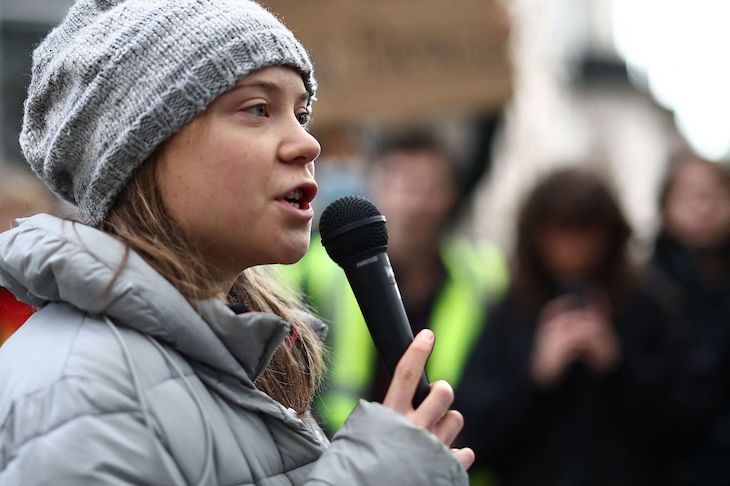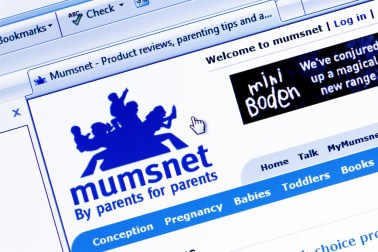Along with the Oxford University Press Word of the Year – usually something you’d never say yourself – and the Pantone Colour of the Year (seriously, has anyone ever asked for a revolting shade called Peach Fuzz?) there is rather an interesting index of our annual concerns: the Children’s Word of the Year. The exercise has been going on since 2014: the Oxford English Dictionary people ask children for a word to sum up the year. This year, it’s ‘climate change’ followed by ‘war’. Yep, adult concerns being foisted on our unfortunate young folk. And I can hear you now: blame Greta Thunberg.
Actually, it turns out that children’s words have been getting progressively more serious for some time. It started out with ‘minion’, one of my own favourites, and went on, in 2020, to include ‘coronavirus’ and then ‘anxiety’. It bears out my own contention, which is that our obsession with mental health may be, if anything, giving children ideas.
Those words of the year do tell us something: the kids are troubled
You can certainly see it in children’s books, which I review. Just today I got sent a paperback by one Sunita Chawdhary, published ahead of Children’s Mental Health Awareness Week (that’s one for the diary: 5-11 February). It’s part of the Mind and Me series, and it’s called Going to Bat, about a little girl called Maya who is joining the school cricket team and is hoping to please her grandfather in India. Trouble is, she’s got an issue with Mind, ‘the voice in Maya’s head which reflects her ideas and emotions. They’re very active and can be quite noisy…’ The book is intended as ‘a gentle introduction to discussions around mental wellbeing and managing anxieties for younger readers’.
Going to Bat is, no doubt, terrifically well intentioned. It’s also not alone: the book is just one of umpteen examples of the genre, ranging from the Mr Men books, which deal with emotions, like Worried and Feeling Sad, to young adult fiction, which covers the full spectrum of mental health issues.
This particular book is about one little girl and her situation, but the childhood anxiety issue in education goes way beyond the personal and particular to the political. Is it right to shovel the whole programme of global issues onto children, when these are things they can do very little about? It’s evident that climate anxiety is programmed into the young at school, which is fine if you’re talking science lessons, less fine if it feeds into a generic sense of hopelessness. (If you’ve ever doubted the power of childhood indoctrination, just try lighting a fag in front of an 11-year-old.)
From the atom bomb at Hiroshima to the happy days at Greenham Common, we all thought that the end of the world would come with nuclear weapons. But even at the height of the Cold War, I’m not sure children took on the (perfectly well-grounded) anxiety about the Bomb quite as much as they do today about climate change. In other words, is consciousness-raising about such issues a contributor to children’s anxiety?
I don’t know; I’m just asking. But two things occur to me. One is that mental health awareness in the young shouldn’t be a substitute for dealing with the underlying issues that cause anxiety; at school, bullying is the prime example. Two, in fiction, the joy of escapism through story is probably more therapeutic than mental health books. Those words of the year do tell us something: the kids are troubled.
This article is free to read
To unlock more articles, subscribe to get 3 months of unlimited access for just $5








Comments
Join the debate for just £1 a month
Be part of the conversation with other Spectator readers by getting your first three months for £3.
UNLOCK ACCESS Just £1 a monthAlready a subscriber? Log in